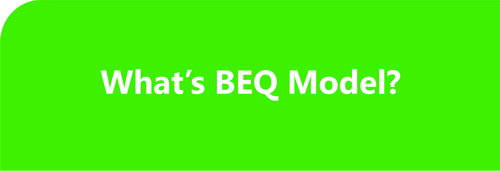BEHAVIORAL EQ®: Summary
The modern workplace calls for a new kind of emotional intelligence training model focused on the most practically important aspects of EQ and focused specifically on modern workplace challenges. Research shows that the behavioral elements of EQ training — the aspects of the model that focus on our actions — lead to the most visible and meaningful improvements. These same behavioral aspects have proven to be the best predictors of job performance and success.The third generation of emotional entelligence training focuses on these behavioral aspects, so we now distinguish between ‘Emotional Intelligence’, which focuses on emotion awareness, recognition, and understanding, and ‘Behavioral Intelligence’, which represents practical skills that directly influence others and our own effectiveness.
What is Behavioral EQ?
A 3rd generation EQ Model
Proven to improve leadership performance, sales and recruiting
Unique family of assessments and training courses
Behavioral EQ includes two components:
1. Emotional Intelligence
2. Behavioral Intelligence
Perceiving and understanding one’s own emotions and the emotions of others.
Gaining insight into oneself.
Exercising empathy for others’ experiences.
Recognizing the impact that emotions have on one’s own behavior and the behavior of others.
Using this awareness to manage personal behavior and relationships.
To fully understand the differences, consider that Emotional Intelligence is completely internal; it is a person’s ability to understand his own emotions and recognize the emotions of others. Therefore Emotional Intelligence can be thought of as preceding Behavioral Intelligence. It might be helpful to practice Emotional Intelligence, but it is difficult to observe and put into action. Further, Behavioral Intelligence has proven to generate visible increases in productivity, team cohesion, employee engagement, leadership performance and the ability to effectively navigate change. Click any of the links below for information about how Behavioral EQ can impact each of the following areas:
The business case for a third-generation Emotional Intelligence training model is clear:
- An insurance company found the average policy value sold by agents with high EQ was twice that of agents with low EQ.
- A study of 500 executive search candidates identified emotional competence as a better predictor of placement success than intelligence or prior experience.
- A consumer products company found a “strong relationship” between superior performing leaders and emotional competence.
- A university study found performance reviews make the giver and recipient less productive, but says the tone of the review (even a bad review) can make people feel upbeat and energized.










